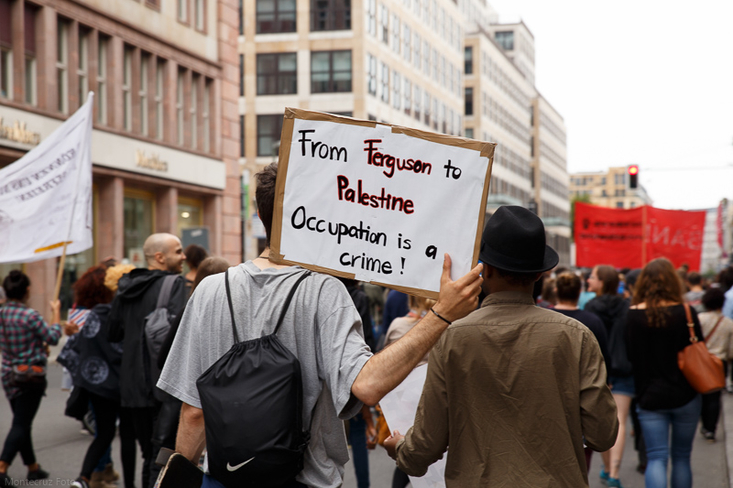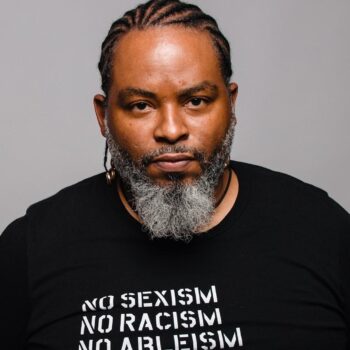Dear Organizer
Well, here we go again. Those of us who’ve done this work for a while know the season without ever having to look at the calendar.
Every four years we enter, “The most important election of our lifetime”.
Those of us who approach the work grounded by our commitments to anti-racism, diversities of feminisms, and the defeat of multinational capital tend to be especially attuned. For us, this is the season that the negotiations begin about which part of our vision, politic, or ourselves we are willing to leave behind in service of the bigger we. It’s usually the same conversations: “People don’t feel safe without police, and they need more money” “No one wants to take control of your body, we just want to restrict the options available to you” “Yes, we know our climate is collapsing and we need to keep extracting til we can ween people away from their toxic drug of choice.”
Because the “we” is so big there are always people ready to seize an opportunity, get some resources, build some capacity, etc. None of that is surprising, nor is philanthropy’s habit of waiting till the last minute to underfund our organizations to do the vital work of saving their asses.
The Ballot
August 09, 2014, was just barely a week after local elections in St. Louis. The county prosecutor, Congressperson, county executive, and many others were on the ballot.
When Mike Brown Jr. was killed, the responses were both starkly different and equally distant from what the community called for. While the prosecutor created a process that would ultimately protect and clear Darren Wilson in the shooting, the Congressman rejected efforts to build voter awareness and engagement. Local movement organizations and organizers did their best to infuse the energies needed to keep the Ferguson Uprisings alive for more than a year. Ultimately the events of 2014 contributed toward increased voter engagement, a number of people/politicians leveraging the uprisings to advance their own careers, and real transformation among a number of people who took to the streets and ultimately decided to run for office. One of those people was Cori Bush.
That said, 2024 is tangibly different. Since 2016, authoritarianism has seriously contended for power in the United States in ways that we haven’t seen in 100 years. At the same time, a wide front of organizations on the left have drawn a hard line around US complicity in the genocidal war being waged against the Palestinian people in Gaza. Simultaneously a new generation of federal elected officials, that now include Cori, have taken the unprecedented step to publicly demand a CEASEFIRE. The backlash was immediate and at an unprecedented scale. In addition to a full-scale media and lobbying push, AIPAC committed $100 million to defeat any member of Congress or candidate who stood in support of a CEASEFIRE.
Which Side Are You On?
While my organization had long worked to stay aligned with the St. Louis Palestinian Solidarity Committee, the relationship between Palestinians and Black people activated into the Ferguson Uprising took on a new character. Although the militarized response by the police took protesters by surprise, the tactics were familiar to Palestinians in the West Bank and Gaza. We would later learn from Palestinian comrades and fellow travelers at Jewish Voices for Peace that not only had local police officers received tactical training from Israeli military forces, many of the weapons police were deploying were also sourced from the region. It changed the way we understood policing and clarified the role of organizations like AIPAC and the Anti-Defamation League who nurture these relationships.
It’s critical that we note the impact this has both on the overall landscape and for organizations who are committed to Palestinian liberation and to end US military funding of the Israeli war machine. First, this is a fundamental shift in the way that we have usually related to elected officials. Historically elected officials took a step closer to movement because there was an opportunity to build their legitimacy, recruit from an active base, and often to provide a buffer against controversy. Cori Bush, Rashida Tlalib, and the other members of “The Squad” who have led the charge are direct products of organizing. Many of them were transformed by the uprisings and interventions that have occurred over the last 10 years. They ran for office on behalf of the movement, with commitments to assert their demands in the form of policy once elected. Working with these folks provides an opportunity to make our values real without leaving a piece of our politic or ourselves behind. Their voices amplifying our demands also offer credibility and legitimacy to segments of our base that may not respond to our day-to-day work.
Secondly, by effectively putting a bounty on the members and their seats, AIPAC has drawn a wedge that we should use to help distinguish our voice and identity in this cycle. Centrist members have joined with AIPAC, the Anti-Defamation League and others in a campaign that not only seeks to justify an increasingly brutal attack on Gaza, but is waging war on dissent and protest domestically. Wars waged on campuses around the country where students and faculty are being repressed, purged and beaten for not aligning with a framework that conflates legitimate political critiques of Zionism with antisemitism. The repressive efforts of the pro-genocide forces work to police and criminalize language from classroom to the halls of Congress.
All of this is happening while there is a real and credible threat of authoritarianism on ballots. Like all types of oppression, authoritarian behaviors are insidious and tend to find their fullest expression during times of uncertainty and fear. Just as MAGA and the right wing have used austerity and uncertainty to recruit and activate loose communities of people to carry their banner, we see the same from a spectrum of elected officials motivated by access to their financial and strategic support. Just as in 2014, it’s a moment to clarify “Which Side Are You On?”
That said, the threat posed by both a MAGA victory at the executive level is real. Plan 2025 postulates scenarios for action whether they are successful or not. This fear of November (much like in 2020) looms over communities all across the country. It’s a fear rooted both in what people witnessed during the last term, and the open question around what they will do this time. Organizers have largely looked at Jan 6, 2020 as a test run, and are planning for all possible contingencies this cycle.
During moments like this the work of organizing, much more than electioneering is critical. People are trying to make sense of all of the input they are receiving from news, social media, and elected officials who they want to trust. They are witnessing a massive amount of brutal war-making happening real time, often narrated by people who are directly involved or affected by these acts of genocide. They have to parse between the Israeli talking points often relayed by media, elected officials and organizations that often self identify as progressive. We have reached a space where our voices, the voices of a few celebrities, and our champions are breaking through. But the nuance lives inside of the organizing conversations. Contrary to many calls, this is not the time to retreat from the streets. Now is the time to help folks make sense not only of the history and players but also how the budget decisions to fund the Israeli military impacts their community. It’s also a rare opportunity during electoral cycles to be able to stand flat-footed to advance movement demands.
Although our tired muscle memory and calendars would have you believe that this is just another cycle, it is in fact an unprecedented opportunity for organizers prepared to seize the moment. The fog is thick as a result of bluster from both sides of the aisle. As a result our people can’t see clearly beyond paychecks that aren’t going as far as they used to. We have a responsibility to accompany our people in this moment and to help them find language for the fear and then build a path to dispel it. We have a responsibility to help parse through the transformed and the opportunists. Our role is to carry our vision and help our people use that vision to light the way to transformation. To do this, we have to find the energy to recommit ourselves to transformation, without regard for what our funders or local party apparatus may want from you. The moment and our collective vision demands that we both answer and call the question “Which Side Are You On?” Our ability to win that vision is in fact at stake, no matter who wins. Choose wisely, and get to work.

